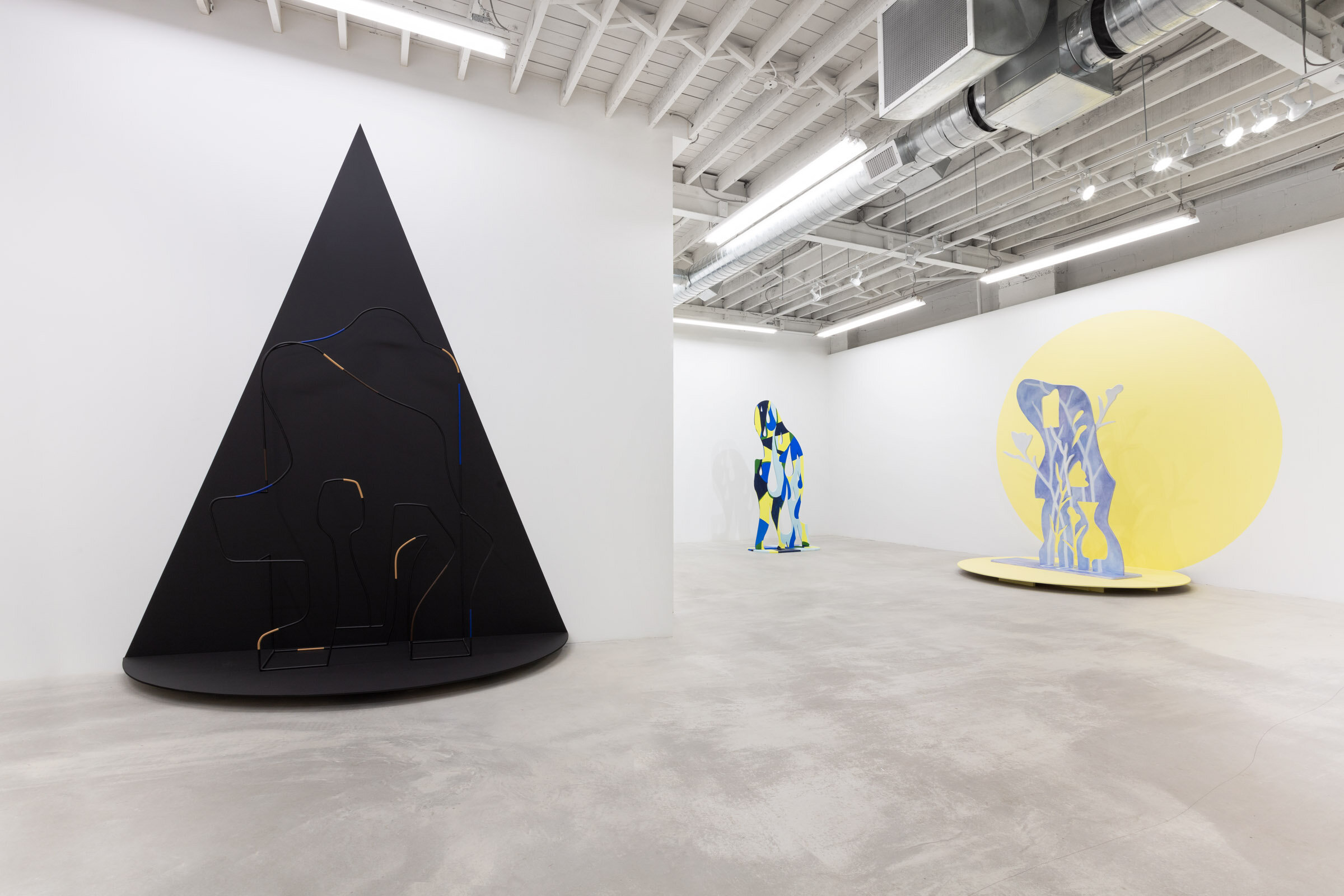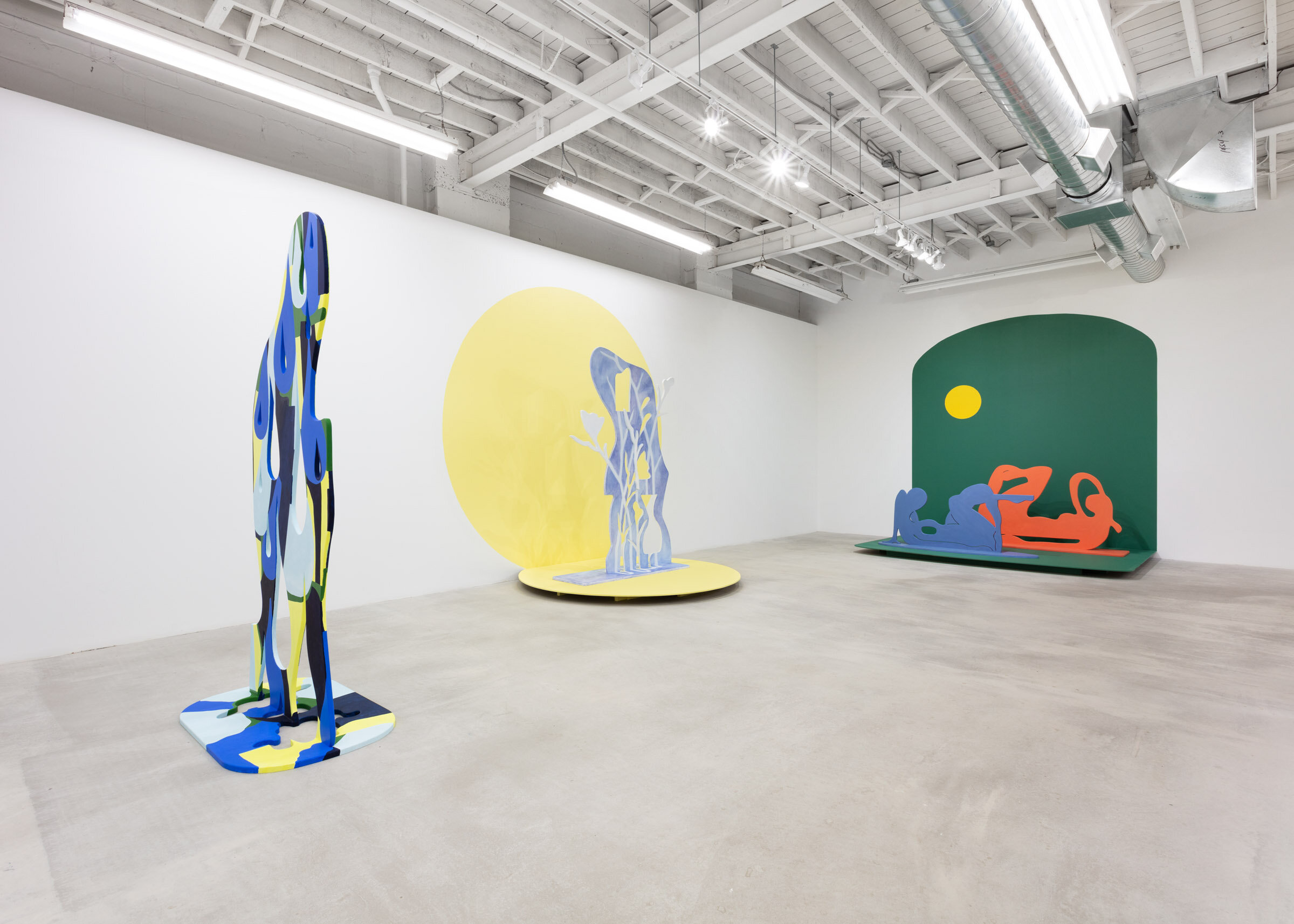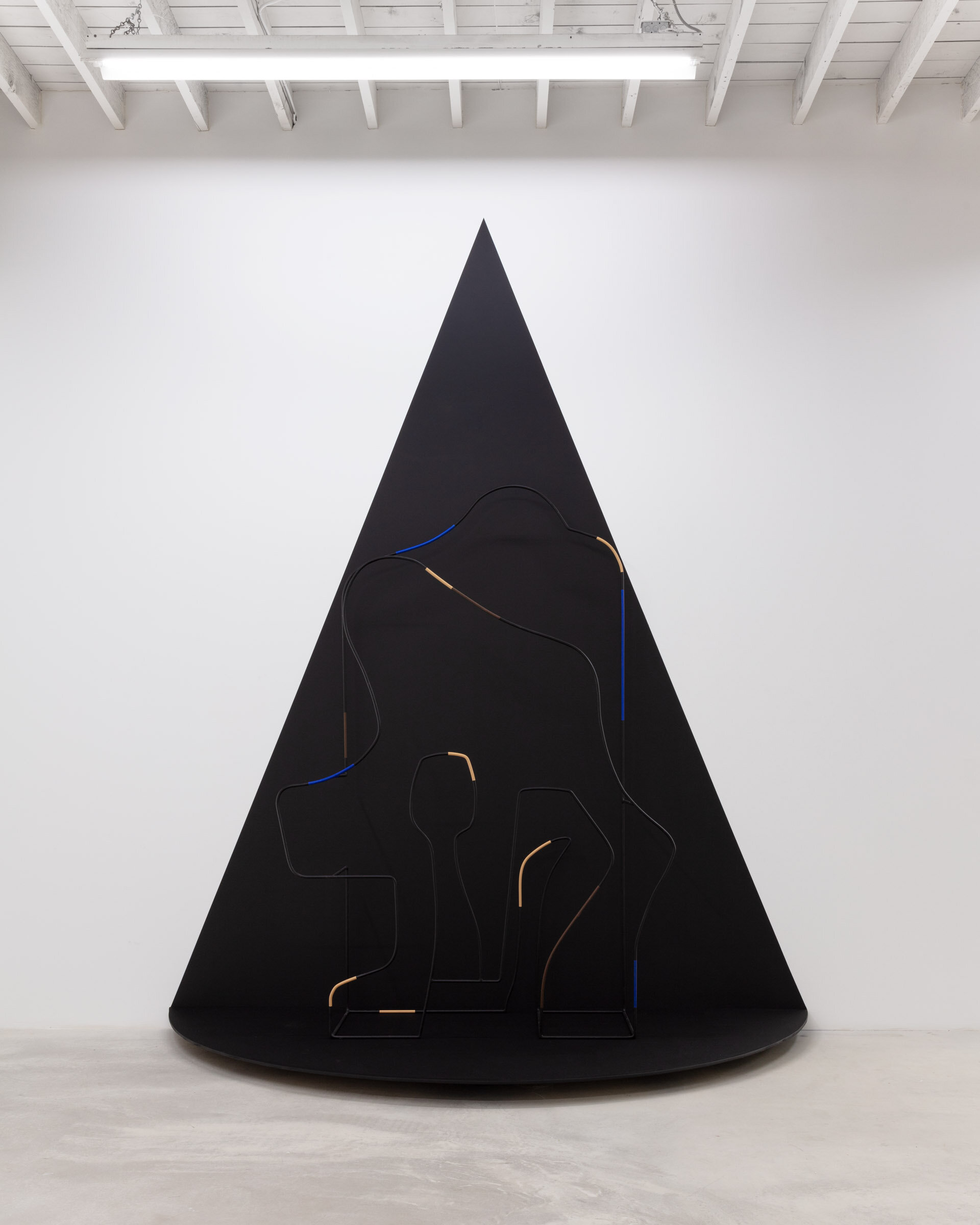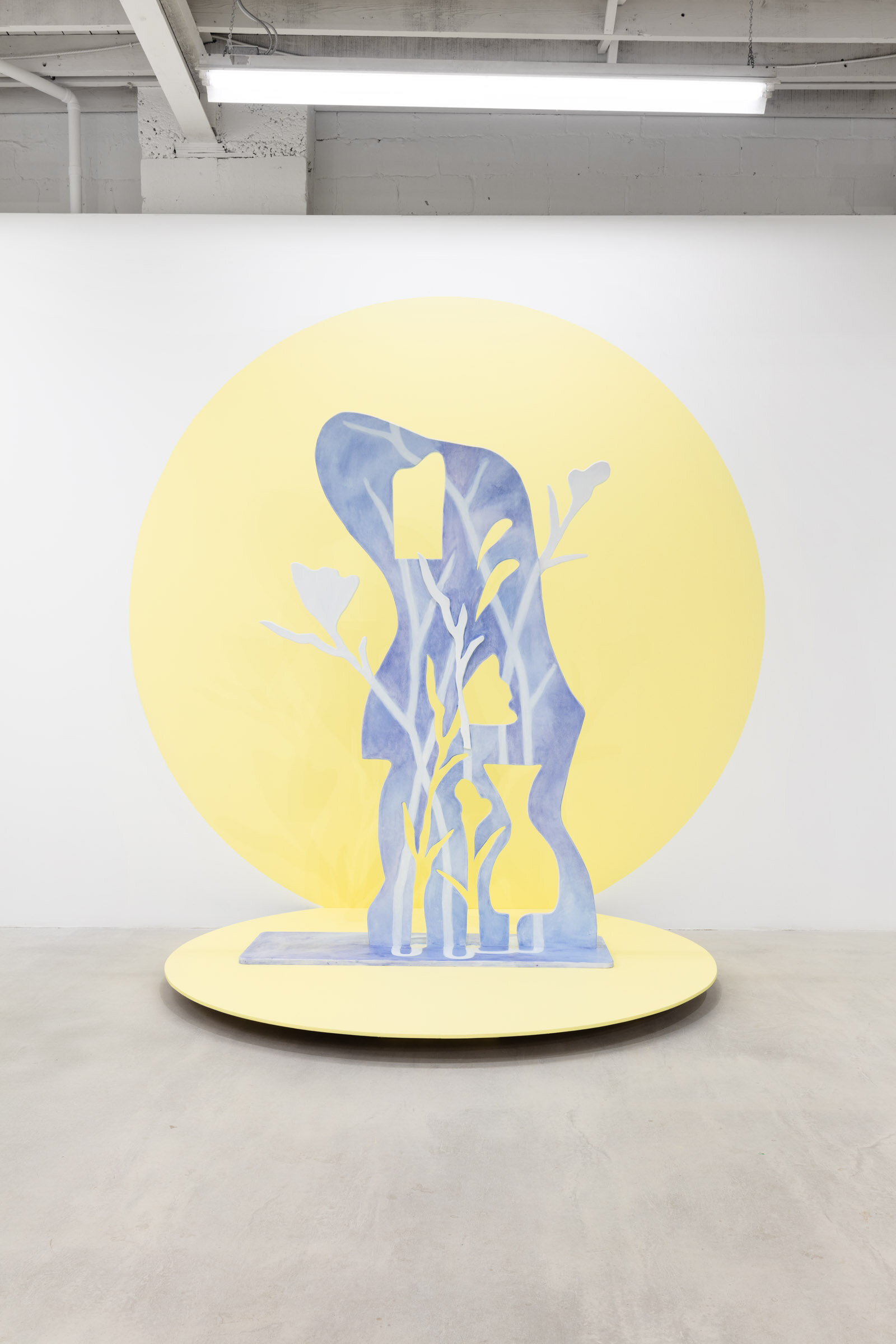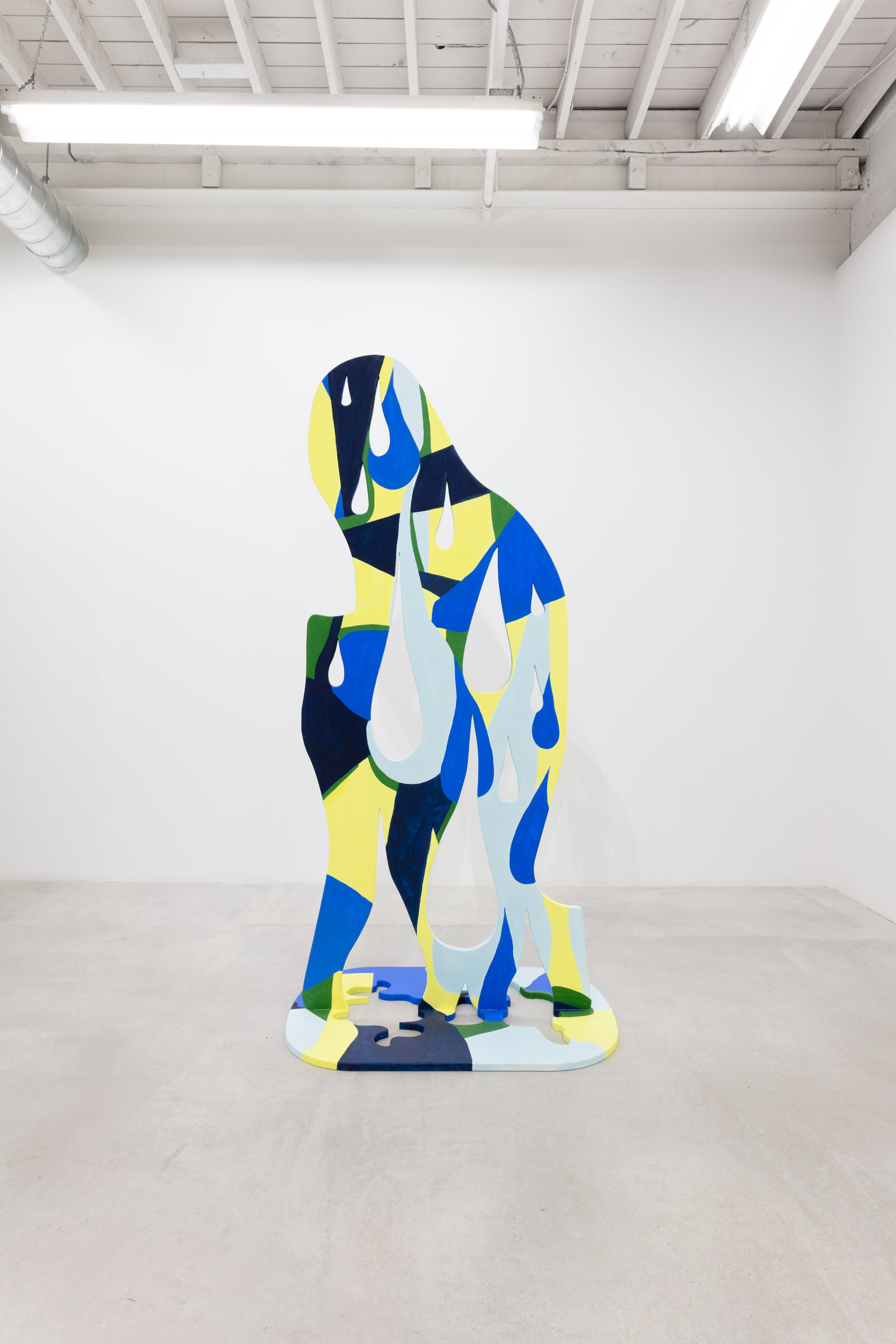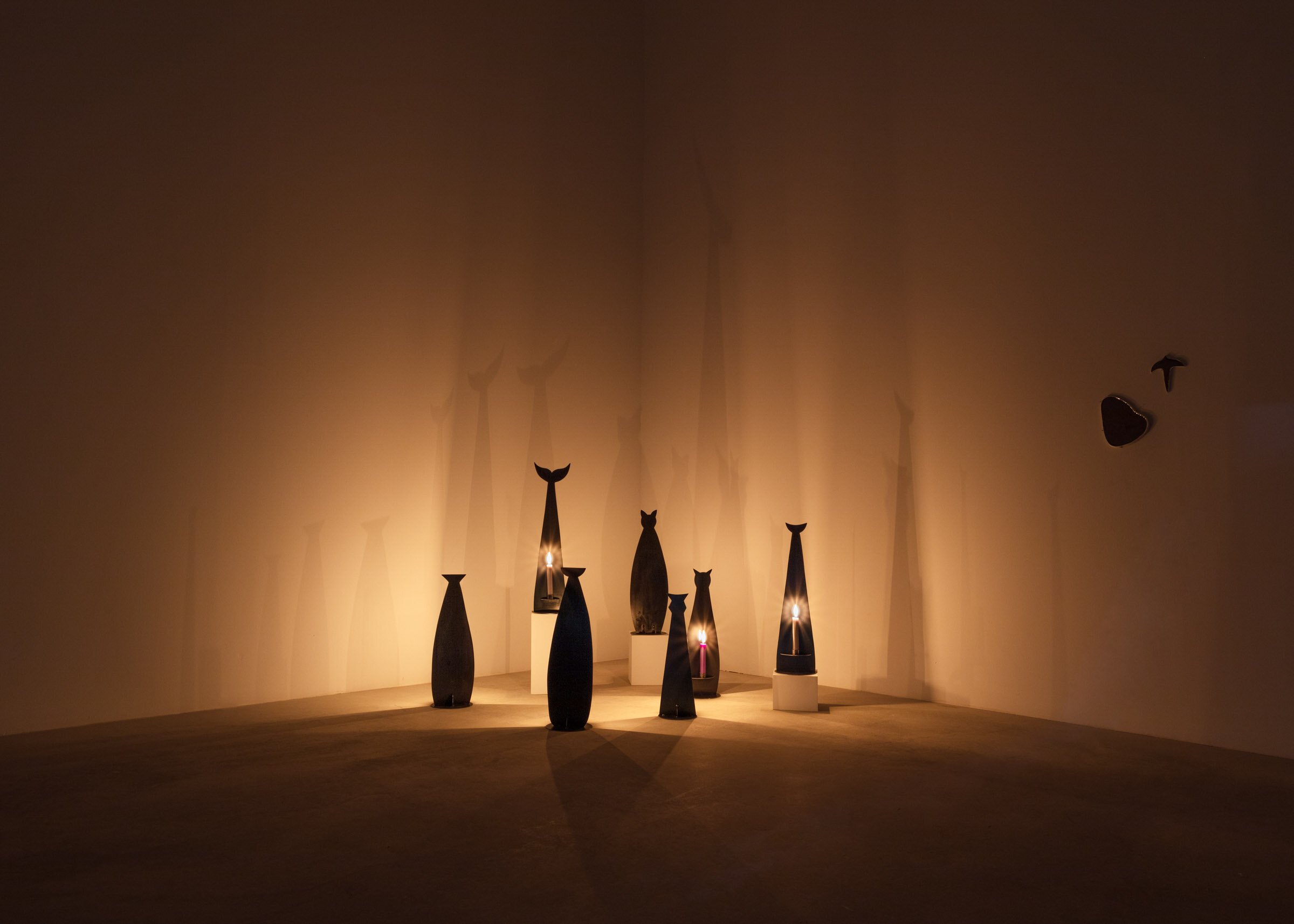Patel brown | 21 Wade ave
vanessa brown | slumber
February 23 - March 28 2021
SLUMBER, Vanessa Brown’s first solo exhibition with Patel Brown, engages a slowness in the viewer’s eyes. Populated by five ambiguously figurative, larger than life sculptures, the exhibition takes sculptural contour as its point of departure and suggests in its slow forms the heaviness of aging bodies.
Mantle, the first sculpture we encounter, provides a visual key to the exhibition. Set against a black backdrop, the wire-like black steel rod sculpture translates line drawing into sculptural form. Its curved contours are slow to appear as our eyes adjust to discern black from black. Its lines also overlap in space and confound depth and volume, contour and silhouette, and even simply foreground and background; as we move around the sculpture, the sculpture simultaneously reveals itself to us and reveals more confoundments. When they do emerge, Mantle’s contours alternately resemble the hunched back of a mourner in a Renaissance lamentation and the asymmetrical sun-worshiping orientation of the ancient Victory Stele of Naram-Sin. These aren’t art historical references, per se, but the residue of historical sculptural shape, marshalled by Brown to speak a body language without directly representing actual bodies.
The exhibition’s other four sculptures feature flat painted wood planes with routered cutouts, evoking an elegant languidness in their interplay of contour and silhouette. Two of these figures feature painted patterns—flowers and raindrops, respectively—that rhyme with the sculptures’ contours and the silhouettes created by their cutouts. The effect is something like a slow op art, in which the play of pattern with surface and cavity produces an almost ambient visual pulsation. These two freestanding sculptures also recall the slumping gait of Masaccio’s Expulsion, seeming to labour as they slowly lumber.
The two remaining sculptures, both monochromatic, borrow their horizontal orientation from the reclining nude form. To a degree they channel the bodily contortions historically characteristic of reclining depictions of women’s bodies, but with a sense of weight that is wholly distinct from the spineless nudes of art history. Brown’s sculptures collapse curvaceous sculptural contour and freehand drawing, balancing ache and tiredness with grace and rest. Her sculptural body language takes form in indelicate stretching—a not-quite-settled repose.
At the core of Brown’s sculptural practice is her work in steel. Her ingenious investigation of shape comes out of her interest in charms and jewelry design as antecedents to her metalwork, and ultimately to her belief in trinketry and heirloom as an alternative economy based on matrilineal wealth. A selection of smaller works in this vein occupies the exhibition’s final room, highlighted by an array of backlit candleholders whose contours run a whimsical gamut between cat’s head, vase, urn, and whale’s tail. Their shadows perform a surreal dance in the darkened room, a dreamlike complement to the weighty solidness of SLUMBER’s large sculptures.
—Godfre Leung

